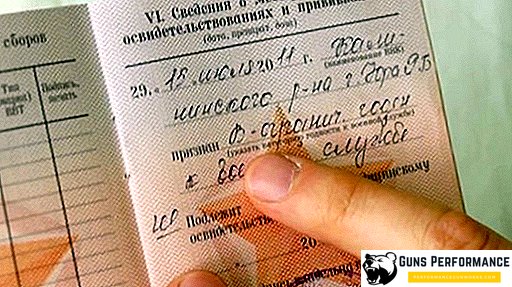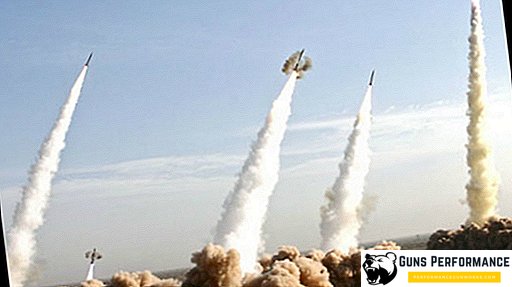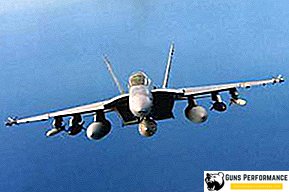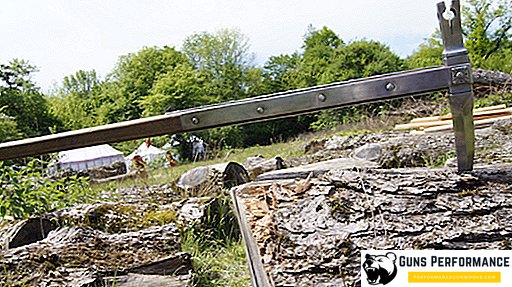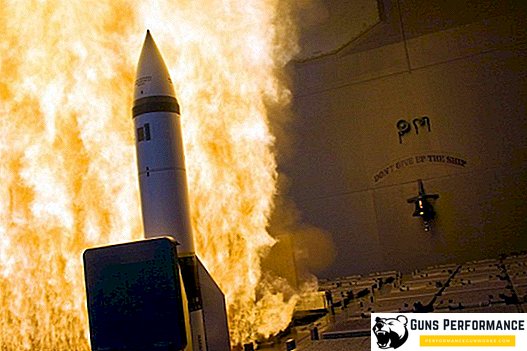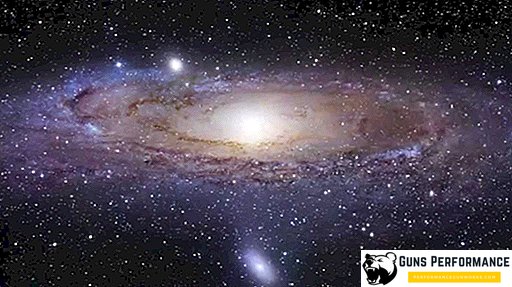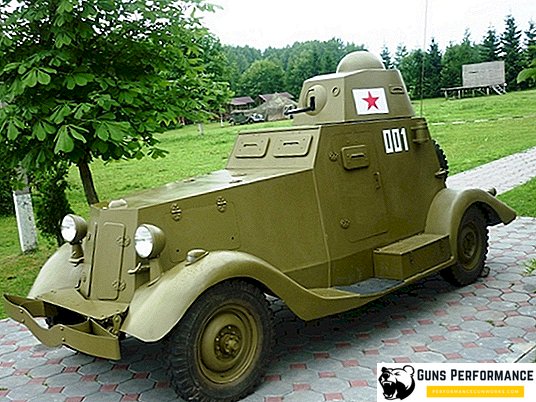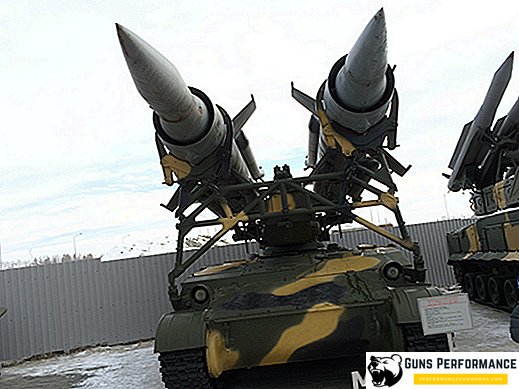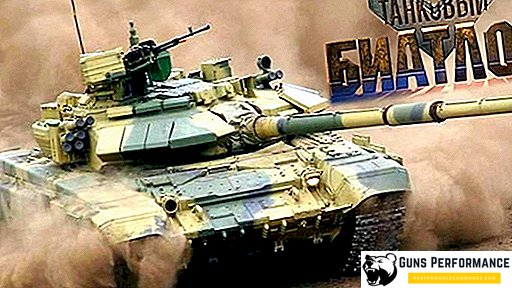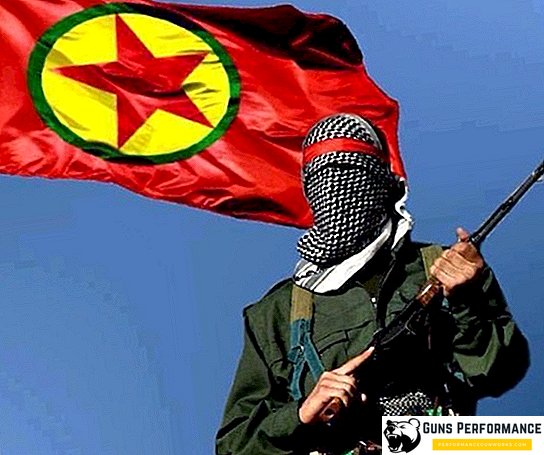
The Kurdistan Workers Party (PKK) is a Kurdish military and political organization whose goal is to create a national autonomy for Kurds within the Turkish state. In a broad sense, it fights for the political rights of the Kurds living in Turkey. To achieve its goals, the PKK often uses terrorist attacks and the abduction of civilians, for which in some countries (Turkey and the United States) the PKK is classified as a terrorist organization. The Kurdistan Workers Party has an armed wing, it is called the People’s Self-Defense Forces.
The size of the organization is very impressive: today, the PKK has hundreds of thousands of supporters and is waging an active terrorist and guerrilla war against the Turkish government. Today, the Kurdistan Workers' Party plays an important role in the events that take place in Syria and Iraq.

The history of the creation of the Kurdistan Workers Party
At present, the Kurds are probably the most numerous people who still do not have their own national state. Most Kurds live in the Middle East, their total number is about 30 million people.
It can be said that of all the peoples living in this region, the Kurds were not so lucky. When, after the end of the First World War, the winners (the Entente countries) divided the Ottoman Empire, they planned to create a national state of the Kurds - Kurdistan. However, this never came to pass.
The territories of compact residence of the Kurds are within the limits of several Middle Eastern states at once: Turkey, Iraq, Iran and Syria. Naturally, the authorities of these countries have always been extremely hostile to any attempts by the Kurds to defend their national interests, not to mention the creation of a sovereign Kurdish state. Most Kurds live in Turkey (according to various sources, from 13 to 18 million).

Iraqi dictator Saddam Hussein poisoned Kurds with poisonous gases and sent army units to fight insurgents. Turks for a long time did not recognize the existence of the Kurdish nation. In Turkey, they were officially called "mountain Turks", and Kurdish was banned for a long time. In Iraq, the Kurds raised a rebellion in the early 60s, which, now flaming up, then fading, lasted for several decades. Today, Iraq and Syria are practically destroyed, which theoretically gives the Kurds living in these countries a historical chance to create their own state. However, things are not so simple.
Turkish Kurds fought no less hard for their rights. The first uprisings against the Turkish authorities broke out in the 20s of the last century, but they were suppressed. In the 70s, another burst of Kurdish nationalism began, the result of which was the creation in 1979 of the Kurdistan Workers' Party (PKK), which initially held extremely left-wing, almost Marxist views.
The creator of the PKK was Abdullah Ocalan - a cult figure of the Kurdish national liberation movement. In 1980, another military coup occurred in Turkey, after which almost the entire PKK leadership was arrested. However, Öcalan managed to escape to the territory of neighboring Syria, and from there he began to lead the movement.

In mid-1984, the Kurdistan Workers Party began a guerrilla war in the south-eastern and eastern regions of Turkey. The authorities in response to this introduced regular troops into these territories, and after three years a state of emergency was declared on them.
At this time, the PKK guerrilla units were called the Kurdish Liberation Army, and the political structures that controlled the Kurdish population of Turkey united in the Front for the National Liberation of Kurdistan. In addition to the Turkish Kurds, the PKK has a strong influence on the large diaspora living mainly in European countries.
Today, the PKK has a serious financial basis, the organization controls a large number of private enterprises, the proceeds of which go on to continue the underground struggle.
Until the end of the 90s, Öcalan lived in the capital of Syria, but in 1998 he had to leave this country. He sought political asylum in Italy, Russia, and Greece, but these attempts were unsuccessful. And in 1999 in Kenya, Öcalan was abducted by Turkish special services and taken to Turkey. It is believed that the special services of Israel and the United States also took part in this operation.
A Turkish court sentenced the leader of the PKK to death, which was soon replaced by a life sentence. Today Ocalan is serving his term in a prison on the island of Imrali in the Sea of Marmara. In 2009, the Turks somewhat softened the conditions of his detention.
However, left without its leader, the Kurdistan Workers Party did not cease to exist. In August 1999, the PKK offered the Turkish authorities a temporary truce that lasted almost five years and was the longest peaceful period in the history of the Turkish-Kurdish confrontation. During the years of struggle between the authorities of Turkey and the PKK there were five temporary truces that differed in different durations.
Literally before his capture, Ocalan called on his supporters to declare a unilateral truce and withdraw all armed groups from Turkey’s territory to Iraqi Kurdistan. It was after this that the fighting in eastern Turkey gradually began to subside.
The partisan actions were intensified again in 2005-2006, now they operated from bases located in Iraq, where the Kurds had almost complete independence at that time.
This situation, of course, did not suit Ankara, which periodically launched air strikes on northern Iraq, which was practically an act of aggression against an independent state. In 2007, after conducting a series of air strikes against PKK bases in Iraq, the Turkish army launched a large-scale invasion of the territory of a neighboring country.
The next aggravation between the PKK and the Turkish authorities began in 2011. The Turkish Air Force made several raids on PKK facilities in Iraq, the Kurds responded by attacking Turkish military installations, killing several dozen soldiers.
In 2013, the Turkish government, together with Abdullah Ocalan, developed a new plan to resolve the many years of bloody conflict. According to this plan, the PKK militants must leave the Turkish territory, and Turkey is committed to enshrine in the constitution the principle of equality of citizens of all nationalities of the country. In addition, the Turkish government was supposed to release all PKK activists and militants from prisons.

On March 21, 2013, Ocalan made an appeal to his compatriots, in which he called for replacing the armed struggle for their rights to the political.
However, these peace initiatives did not come true. In 2018, the Kurdistan Workers Party announced the end of the truce in connection with the regular bombardment of Kurdish positions in northern Iraq. On December 21, 2018, Turkish troops launched a large-scale operation against PKK militants in the settlements of Cizre and Silopi. It ended only in February of this year.
On August 20, 2018, Turkey launched a military operation in northern Syria. Fighting is being conducted against terrorists from ISIS and Kurds living in these territories. The Democratic Union Party, which today serves as a provisional government in Syrian Kurdistan, is called by many the Syrian wing of the PKK. It is clear that such actions by Turkey clearly will not lead to the normalization of relations between the PKK and the Turkish government.

Kurds and the future of the Middle East
The problem of the Kurds is one of the most acute in the Middle East. It would seem that a nation that has been desperately fighting for its independence for several decades is worthy of its own state. However, at present, all the stories that an independent Kurdistan may appear in the coming years are more likely to belong to the genre of unscientific fiction.
And the point is not that all the strongest regional players will oppose the creation of such a state, but the degree of disunity of the Kurds themselves.
The Kurds are not a single ethnic group, but a mixture of tribes, which are quite different from each other, both in terms of the languages and dialects that they use, and in the context of cultural and religious affiliation. Even more between them there are differences related to national identity.
In many respects, the Kurds are very similar to the Slavs, with their numerous differences and conflicts, or, given the level of conflict within this ethnic group, with the Caucasian tribes of the 1990s.
In the 90s, apart from the PKK (Marxists), there existed also Kurdish Hezbollah (religious radicals) in southeastern Turkey, between which bloody clashes constantly occurred.

Northern Iraq is controlled by two Kurdish groups: the "Patriotic Union of Kurdistan" and the "Democratic Party of Kurdistan"; the war between them continued until 1998. Moreover, the latter force is focused on Turkey - the mortal enemy of the PKK. In addition, oil from Iraqi Kurdistan goes to the world market through Turkish territory.
And this is a very simplified picture of the current situation: today, the Kurds are represented by almost fifty very different parties and partisan units, often fiercely hostile among themselves. Today, the two most influential Kurdish organizations, the PKK and the Democratic Party of Kurdistan, see the future of the territories they control in absolutely different ways. It is this antagonism that will largely determine the fate of the Kurdish people in the coming years.



